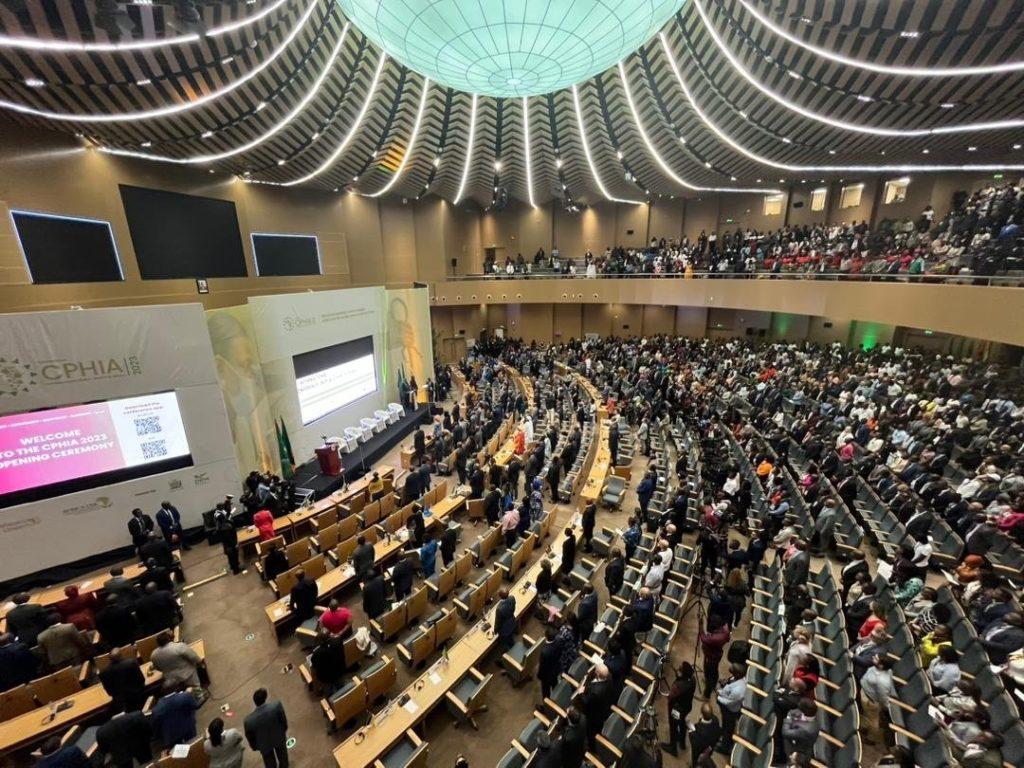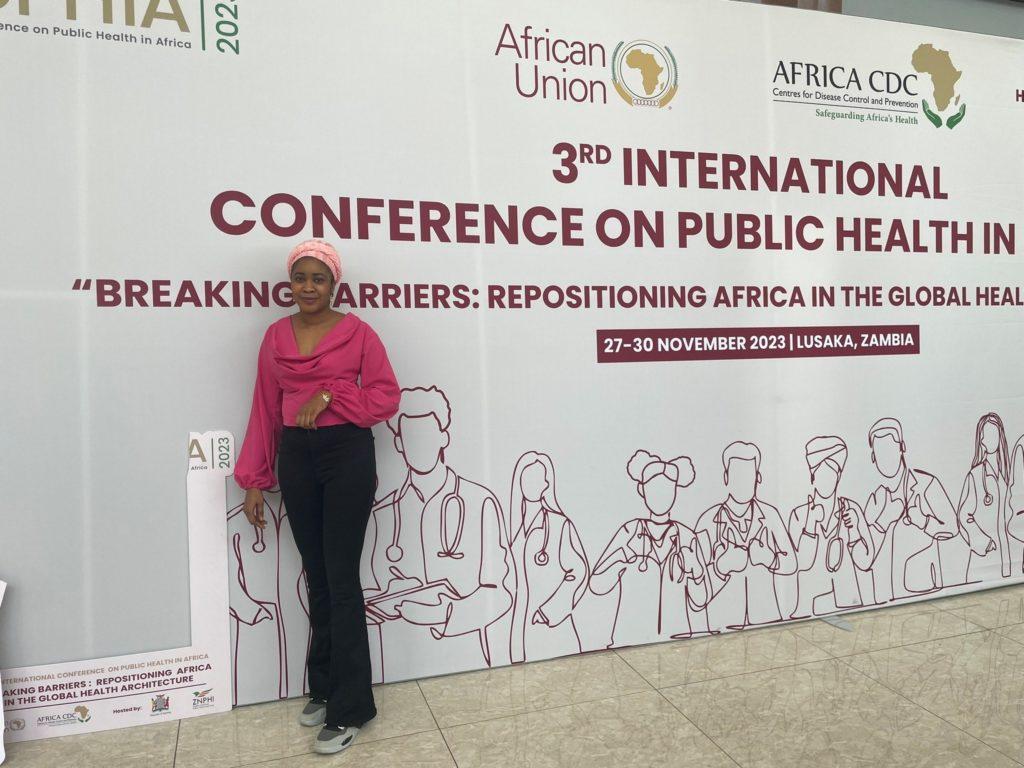
Over the past few days, I attended the 3rd International Conference on Public Health in Africa (CPHIA 2023) in Lusaka, Zambia. Organised by Africa CDC and hosted by the Zambian ministry of health this year, the annual conference unites people from across Africa to exchange knowledge, share resources, and disseminate best practices. The theme of this year was, “Breaking barriers: repositioning Africa in the global health architecture”. As indeed, the consensus is clear – it’s time to see the Africa we want to be shaped by African-led research and solutions, strengthening regional collaboration and strategic partnerships in order to achieve the New Public Health Order. While global health has arguably come a long way, “decolonization” requires an additional stride – African health research systems and innovations propelled and guided by Africans. The persistent dominance of the Global North in shaping the global health landscape has long dictated the narrative of what constitutes knowledge, scholarship, research, and science in Africa. It’s time for real change.
Some key themes at the conference
Undoubtedly, the continent continues to battle with substantial public health challenges. But who gets to define what reshaping ‘public health in Africa ’ means? For whom and why, if not Africans? How will this work in practice? And what’s missing? At the opening plenary, Africa CDC head Jean Kaseya advocated for a paradigm shift, through a strong emphasis on what he called the 5 Cs. Community, Connectivity, Capacity, Collaboration and Climate were all highlighted to strengthen health systems, build resilience and guide the repositioning of Africa in the global health architecture. Also addressing the plenary session and honored with a lifetime achievement award in public health, WHO’s DG “Dr. Tedros” named one crucial element for repositioning the continent: “Political will. If there is unwavering political commitment from all our leaders in Africa, anything becomes possible.”
Strong partnerships and securing funding have consistently been a major propeller of public health responses in Africa. But this means much more than getting funding, it means moving beyond conventional donor-recipient dynamics, forming strategic, respectful partnerships and co-leading efforts. Reflecting on whose values and perspectives are acknowledged, thoroughly (re-)evaluating engagement models with co-ownership focus, and most crucially, prioritizing the community’s interests in our partnership engagement strategies were strongly clamoured for by various groups.
Investing in home-grown solutions—including local innovation and manufacturing of health products—remains an indispensable element in strengthening autonomy in Africa and achieving a New Public Health Order. In his opening speech, Jean Kaseya underscored the significance of this endeavour, stating that elevating Africa’s vaccine manufacturing capacity would symbolize a ‘Second Independence’ for the continent. Indeed, in spite of being the largest global consumer of children’s vaccines, Africa still lacks vaccine production capabilities. It’s time to shift from being dependent on external suppliers and playing passive and recipient roles in global health initiatives, vaccines and manufacturing. In addition to setting up the continent’s vaccine manufacturing capacity in the coming years, resilient financing mechanisms for Pandemic Preparedness are also needed to safeguard the region from public health threats, ensuring solutions are independently steered through its politics, research, institutions, health workforce, communities and donors.
Digital health also took center stage at CPHIA, resonating through various side events and plenary sessions that passionately underscored the significance of harnessing digital innovation and leapfrogging, rather than merely progressing step by step. Caroline Mbindyo, CEO of AMREF Health Innovation, emphasised how “Innovation doesn’t start with technology; it starts with the people the technology is made for”. Engaging in co-creation and co-design with health workers, tailoring solutions to the people they are intended for, and aligning with existing systems in Africa are pivotal steps. This approach should acknowledge our uniqueness and the realities of the continent: yes, the swift adoption and scaling up of digital innovation is needed, but the digital leap forward shouldn’t make the (already big) gap between our rural and urban communities even wider. While recognizing the tremendous power of Digital Health, it’s crucial to understand that they are tools and toolkits, not a definitive solution. Technology alone cannot navigate us out of the systemic barriers hindering our health systems in Africa.
Replacing the gender gap with gender equity is of utmost importance to foster social and economic progress. Dr. Matshidiso Moeti from the WHO Regional Office for Africa emphasized the grim reality: ‘Global health is delivered by women, led by men. Despite comprising 70% of the health workforce, only 25% of women hold leadership positions.’ Whether we call them gender-sensitive or gender-responsive health systems, the essence remains the same – we need health systems that genuinely work for women and girls, ensuring their equal participation in shaping the delivery and design of public health in Africa.
Towards the Africa we want
In the grand scheme, while these discussions are extremely important and much needed across the continent, they are just a part of a bigger picture. Vivianne Ihekweazu, Managing Director of Nigeria Health Watch beautifully captured this sentiment, stating, “The beauty of the conference is in realising we share similar problems. We are not only able to discuss our common and distinct challenges but also exchange solutions and learnings from other African countries that are getting it right. However, greater value is derived from immediate, unified action in Africa. Persisting with the status quo poses the risk of recurring challenges.”
Being a young African myself and connecting with peers from 55 countries at this conference, I genuinely feel hopeful and emboldened with the tremendous skills and expertise we all possess. I believe we collectively have the will to not just “break barriers” but reshape the Africa we want now and in this lifetime. As the President of the Republic of Zambia rightly put it, “Building a strong public health in Africa requires us to work in unionism”. The African continent and its incredibly exceptional people are awakening to its aspirations with a collective desire for the best outcomes of public health.
